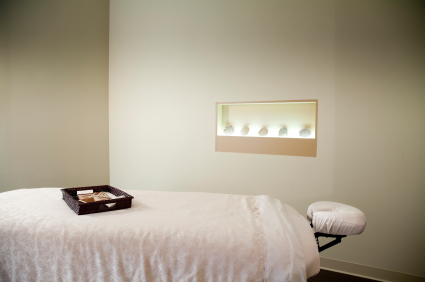May 21, 2013 -- The House Health Committee voted 8-1 to move a bill that Sen. Alan Bates, D-Medford, says will both elevate the profession of massage therapy and rein in human sex trafficking and prostitution that uses the therapeutic practice as cover.
Senate Bill 387 would require facilities that operate or advertise massage services to buy a permit, hire only licensed massage therapists and comply with state public health and sanitation standards.

The state could fine, suspend or shut down facilities that refuse to comply.
“We’re going to see massage therapy become a fully recognized profession that it really is … and separate it from this horrible thing that goes on behind closed doors and frankly gives massage therapy a black eye,” Bates testified before the committee earlier this month.
Bates said as a physician he refers patients to legitimate therapeutic massage therapists and wanted Oregonians to see it as a viable health option.
David Fredrickson, a licensed massage therapist in Ashland and the chairman of the state Board of Massage Therapy, testified that Oregon may have one of the highest rates of sex trafficking in the nation, and there is an unfortunate overlap with massage parlors. He submitted a score card from Shared Hope International’s Protected Innocence Challenge that gave the state a D mark for sex trafficking.
Currently, there is a perverse loophole in state law that requires massage therapists to be licensed to do business, but places no requirements on their employers to meet any kind of health or licensing standards, if the employers are not massage therapists or other licensed health professionals.
Fredrickson said this makes it easier to prosecute the people practicing illegal massage than their employers, even though those practicing massage without a license may be sex trafficking victims themselves.
“Those providing the services are subject to the legal penalties, those trafficking them or hiring them are not currently,” said Fredrickson. “We share concerns with everyone along the I-5 corridor that we have persons, mainly women and women of color being trafficked in massage facilities.”
Fredrickson is a social acquaintance of Bates, and helped draw the doctor’s attention to the issue. With his sponsorship, the bill passed the Senate unanimously, but Rep. Jim Weidner, R-McMinnville, said while he may support it on the floor, he opposed it in committee until he could gather further information.
Massage facilities would only have to pay a $50 fee for the permit to cover the cost of inspection, but by doing so it gives the state oversight of the facilities, along with county health departments. SB 387 does not apply to facilities operated by already-licensed health professionals or massage therapists who operate out of their home.